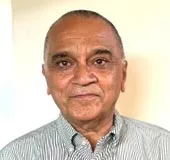The “non-development expenditure” of state governments — the cost of keeping their government apparatus going amounted to Rs 10.5 trillion or 27.5% of their total receipts in 2019-20 (RBI Public Finance Data) versus 20% of receipts for “establishment” expenses in the Union government (Union Budget Documents).
Putting the two together, the Indian taxpayer shelled out Rs 16.21 trillion in 2019-20 or nearly 8% of GDP on administrative, non-developmental purposes.
Would it cost less if India were a unitary government like the UK, sans intermediate provincial governments but with empowered local government councils and special purpose devolved entities for regional development?
With enhanced local devolution, if the existing administrative templates are replicated, the administrative costs would explode without any enhanced benefits for citizens.
The administrative expenditure of state governments is presently concentrated around the 5,000 odd urban areas to the neglect of the 600,000 villages in rural areas. With enhanced local devolution, if the existing administrative templates are replicated, the administrative costs would explode without any enhanced benefits for citizens.
But devolution does not have to be a mindless photocopying exercise. The pattern of functional and fiscal devolution since Independence has made the Union government the prime policy maker with state governments tweaking these at best. The Union government has never been shy of distributing largesse directly attributable to it or to enlarge its levers of control via the police and security apparatus.
Within this construct, the intermediate layer of state governments is a superfluous construct. The overarching goal of most state level politicians and administrators is to graduate to the national level. States remain important merely as symbols of linguistic or cultural identity — not as pools of locally contextual expertise or decision making.
The pattern of functional and fiscal devolution since Independence has made the Union government the prime policy maker with state governments tweaking these at best.
This effective “hollowing out” of state governments is accentuated by the centralising power of digital technology and the associated pan national networks of professionals, business and non-state actors — all of whom now have direct access to national institutions. India already has a unified higher judiciary which is administratively linked to the Supreme Court and not the state governments.
Add to this that India has re-entered a political cycle of dominant single party rule since 2014 — a throwback to the first four decades after Independence. This further erodes the administrative autonomy of state governments because national party fiat has more force that local concerns.
State governments are loath to share power downwards. They have no option but to share it with adjoining states to enhance efficiency and remain relevant via “multi-state special purpose vehicles” to manage natural resources like clean air or the conservation of our water resources. In both the optimum eco-sphere for scientific management invariably spreads across state boundaries.
India has re-entered a political cycle of dominant single party rule since 2014 — a throwback to the first four decades after Independence.
The post-independence statist, centralised approach decreed the heavy hand of the Union government to fill the regulatory void in managing such transboundary ecological public goods.
One such was in the management of river water via the River Boards Act 1956. Expectedly, this was a bare bones legislation enabling the Union government to constitute a board, staff it or dissolve it. The mandate of the Boards was purely advisory and to exercise oversight over schemes being implemented. Their performance has been less than exemplary and water resources have degraded substantially on their watch.
Reviving rivers is a priority of the Modi government. A draft River Basins Management Bill was circulated for comments in 2018 initially applicable to the thirteen largest river basins.
The heavy hand of the Union government remains.
Drawing on earlier work by Jayanta Bandopadhyay and Nilanjan Ghosh of ORF Kolkata, a forthcoming paper on “Inter-State River Water Governance” by Sayanangshu Modak and Ambar Kumar Ghosh (ORF 2020) makes the point that the draft bill is a significant advance over its 1956 predecessor.
First, state chief ministers have found assured representation and nominal control on the Governing Council of the Board. Second, non-government professionals are included in the Executive Council. Third, state and local government public representatives and nominated experts are represented on an Advisory Committee. All these are baby steps towards participative governance.
However, the heavy hand of the Union government remains. The Chairman of the Executive Committee and the bulk of its members would be Union government engineering officials. The power of nominating members remains with the Union government and not the Governing Council of the Board. This greatly dilutes local participation and control over the quality of decisions and outcomes within the administrative bodies of the Board.
Pursuing new Union legislation of a mono-focal kind — and hoping for better results — is a mistake.
The Board is to be entirely funded by the Union government. This is a step backwards from the 1956 Act, which permitted State government funding also. No borrowing is permitted for the Board.
The work of the Board remains closely aligned with what the Central Water Commission does today — a combination of base line studies; data collection and dissemination and formulation of long term resource management plans, sadly with a distinct tilt towards hydrological assessments and water use but no integration of related ecological resources like soil, forests or wild life.
Pursuing new Union legislation of a mono-focal kind — in this case water — and hoping for better results is a mistake. The intent should be two-fold.
First, cede executive power in real terms (financial and appointing powers) to the Board comprising the concerned state governments in consultation with their local governments, to agree on integrated ecological management per the basin wide priorities.
The Union government should only have a “golden share” to nudge decision making towards equitable and sustainable outcomes — not hold a hammer, as it does in the existing draft, to veto anything which is not in an undefined “national interest.”
Second, target integrated management of agriculture, forests, mining, industry, energy, water and habitats with the intention of mitigating the social and economic ecological costs of development. Only then can local creativity and innovation be unleashed to make future outcomes different from past failures.
This commentary originally appeared The Times of India Blogs.
The views expressed above belong to the author(s). ORF research and analyses now available on Telegram! Click here to access our curated content — blogs, longforms and interviews.




 PREV
PREV


